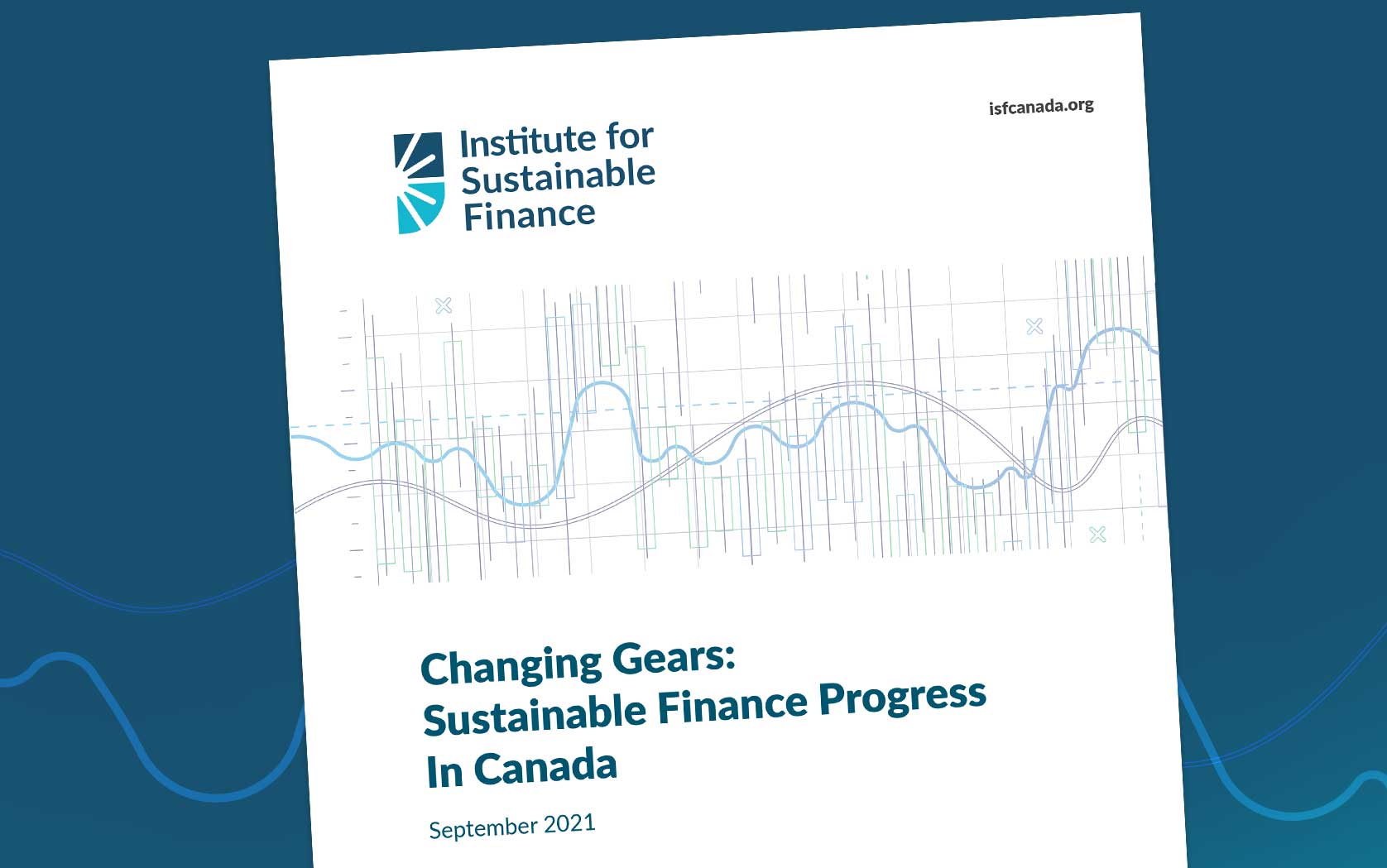Charting Canada’s sustainable future
Moving into a sustainable future will take time, effort and expertise. One of the organizations working hard to make it happen in Canada is the Institute for Sustainable Finance housed at Smith. The ISF is a multi-disciplinary network of research and professional development that brings together academia, the private sector and government to shape Canada’s innovations in sustainable finance.

The ISF has done important work in the past year, including the launch of a report in the fall of 2021 assessing Canada’s progress to scale sustainable finance and bolster Canadian competitiveness.
The report, “Changing Gears: Sustainable Finance Progress in Canada”, used the Expert Panel on Sustainable Finance’s 2019 recommendations as its starting point. It revealed that while progress has been made on the recommendations, Canada needs to move faster in aligning financial systems with a global low-carbon transition.
In his foreword to the report, Andy Chisholm, member of the Expert Panel and RBC Board director, noted: “The central message from this ISF report is that we can and must do better; time is of the essence and Canada needs to up its game in its efforts to develop a competitive and sustainable economy, which supports an inclusive and successful transition to net-zero. This analysis is not a surprise, but it is another wake-up call to the public and private sectors that timely implementation is critical.”
The report’s conclusion was informed by interviews with 34 leading Canadian experts in sustainable finance, including the governor of the Bank of Canada, leaders from the “Big Five” Canadian banks, representatives from Canada’s largest insurance companies and pension funds, global market experts and investors. They note Canada is being outpaced globally—and its overly cautious approach has left the country in a “catch up” position. Meanwhile, public and private sector initiatives elsewhere continue to set the tone and direction for the sustainable finance policies and practices that are reshaping the global economic landscape.
“As the world rushes ahead, our public and private sector must shift into a higher gear,” said Sean Cleary, chair of ISF and the report’s co-author. “By taking decisive action now, we can propel the Canadian-specific solutions that our industries need to thrive over the next three decades.”
According to the report’s findings, the next step is catching up fast on the table stakes—policy certainty and decision-useful information—which includes mandating disclosures and clarifying the scope of fiduciary duty in law and practice. Simultaneously, the report underlined the importance of getting more investment flowing towards clean innovation in Canadian sectors, which will require co-operation between the public sector, private sector, and financial system.
“Our interviews reveal that from capitalizing on hydrogen and mineral-to-battery supply chain opportunities, to electrification, building retrofits, and building climate-smart infrastructure—we know where money needs to flow to build the resilient economy and industries Canadian competitiveness depends on,” said Sara Alvarado, executive director for ISF.
The report outlined seven key themes:
- Accelerated action and execution is needed. Canada must catch up to Europe and the UK. The private financial sector is now moving faster than the government and regulators in Canada.
- Our financial ecosystem needs to embrace change. There is strong support for Canada’s investment industry and financial institutions to shift their attitudes and behaviours.
- Canadian-specific solutions are required. This includes sector-specific decarbonization pathways and transition scenarios that are supported by research within a Canadian context.
- Sustainable finance must include more than climate. In the context of COVID-19 and Canada’s reckoning with the urgency of truth and reconciliation with Indigenous peoples, there is a need for a broader, more inclusive, and socially concerned sustainable finance conversation.
- Canada’s net-zero transition requires a more unified approach and narrative. This means a more centralized voice and perspective for the country on sustainable finance and the net-zero transition, as well as strengthened communication.
- While climate mitigation is critical, we need a greater focus on adaptation and resiliency. Climate resilience and adaptation have continued to be priorities as climate change impacts become more apparent.
- Clean Innovation and other opportunities need more support. The importance of capitalizing on cleantech opportunities, as well as our lack of progress to date in doing so, is of utmost concern.
